Hollywood & Spine Archive: Tome-inator
An overview of the novelization to TERMINATOR 2: JUDGMENT DAY, originally published November 2019.
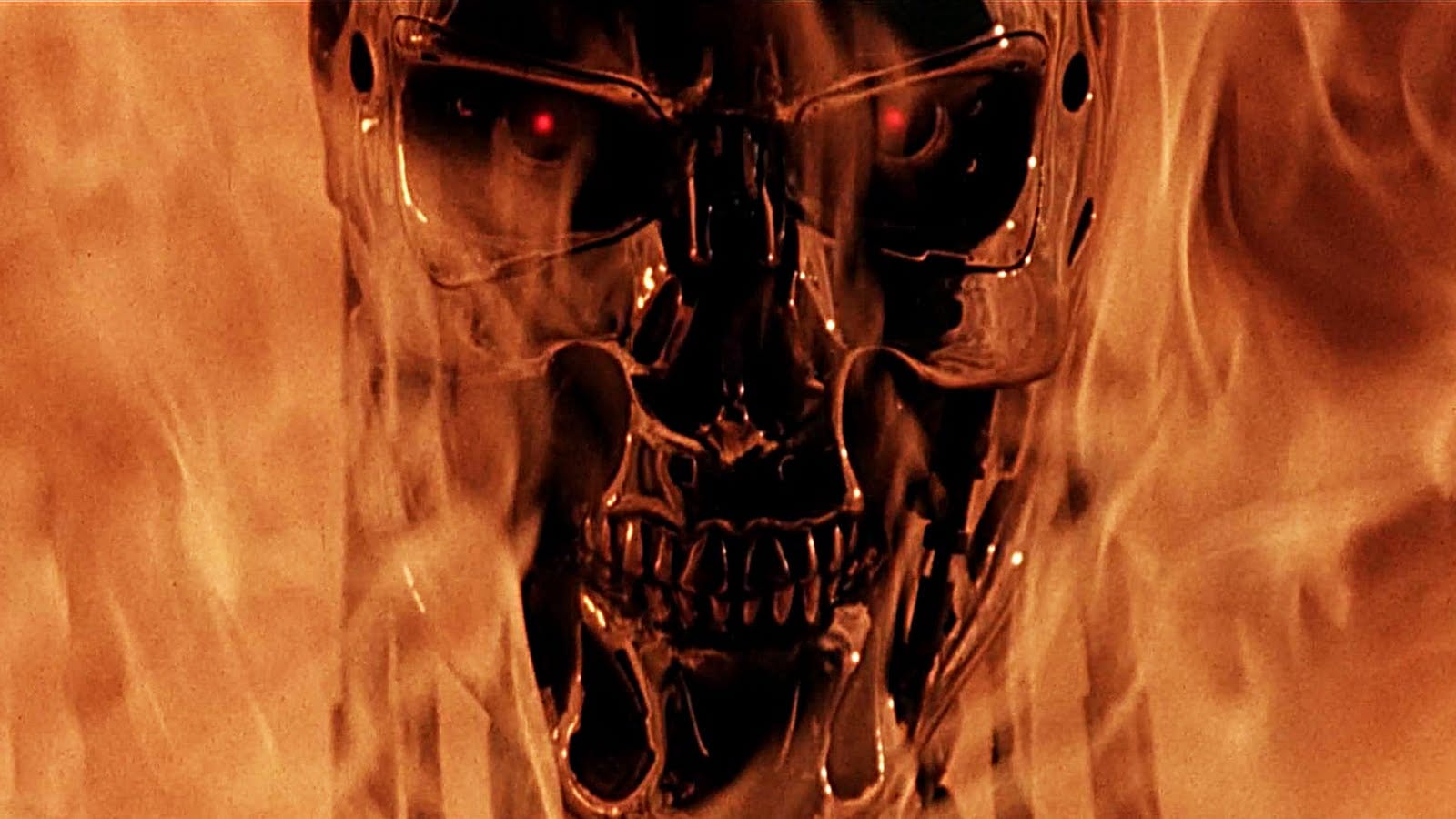
One of the great unrealized writing projects I've considered is an in-depth look at how the six Terminator films are owned and distributed by multiple companies, so unable to stay afloat are the various rights holders. The producers who made Terminator 2: Judgment Day blew all that money on Cutthroat Island, a ridiculous movie about pirates that failed so hard that the company went bankrupt. Now, however, that idea is mostly to signify how much (over)thinking about the Terminator franchise you're getting in this old essay. (originally published 11/12/2019)
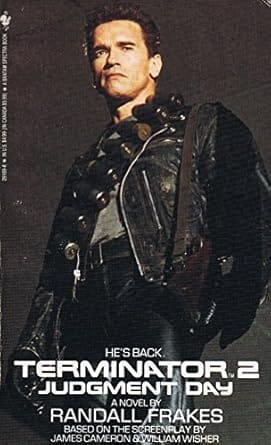
Terminator 2: Judgment Day by Randall Frakes (based on the screenplay by James Cameron and William Wisher) (Bantam Spectre, 1991)
The pitch: In the maximalist sequel to James Cameron's lo-fi sci-fi thriller, a future war between humans and machines is again fought in the present - this time with the help of a reprogrammed T-800 cyborg sent through time to protect humanity.
The author: Randall Frakes was not only an accomplished sci-fi/fantasy writer, but a close friend and collaborator of Terminator creator James Cameron. Frakes wrote Xenogenesis, a short which became Cameron's first directorial credit (T2 co-writer William Wisher starred in it), and both men worked behind the scenes on Roger Corman's low-budget Battle Beyond the Stars and Galaxy of Terror. (Frakes, of course, also continued his work on the Terminator series here, having co-written the original film's novelization with Wisher.)
The lowdown: Nearly 30 years after the release of Terminator 2: Judgment Day, one could argue that - despite its record-breaking budget and groundbreaking special effects - it's one of the quainter big-budget action flicks ever released.
First, it's hard to reconcile the film's then-relevant nuclear nightmare with the more urgently real ways society is imperiled. It's also easy to not consider Terminator a true "franchise" until the 21st century, when a spate of wildly uneven sequels made their way into multiplexes. Most recently, there's the just-released Terminator: Dark Fate, which, with Cameron receiving story and producer credits, wipes every other post-T2 flick off the board for a well-that-sure-happened sequel/reboot. (I had two very strange encounters with Terminator lore in the lead-up to the film. First, there was this tweet, retweeted by the film's official social media channels (and since deleted and disavowed by the user!), practically daring you to lower your expectations. Then there was the massive arcade cabinet for Terminator Salvation, the fourth film released a decade ago and now blessedly non-canon, that I passed on the way to my Dark Fate screening.)
The idea of an effects-laden, high-concept, massively-merchandised tentpole picture was surely a known quantity in 1991, but in 2019 we get one of these at least once a quarter from Disney alone. T2 is eminently more rewatchable than any Marvel film, but in this era of contextless viewing, what can truly remind audiences what a wallop this film packed upon its initial release?
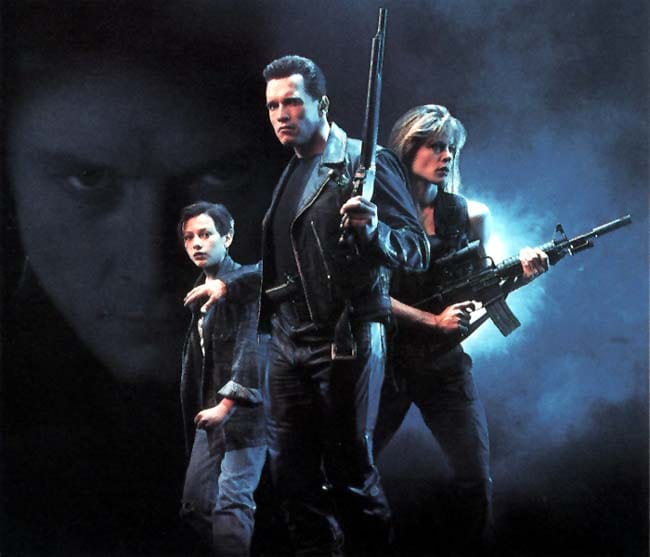
You guessed it: enter the T2 novelization. A good movie tie-in preserves or even enhances the experience of having seen a film, especially in those spaces between viewings on home video. Terminator 2 did this better than most, thanks to a writer with a close watch on the source material and a myriad of story details first publicly made available within.
As this interview with author Randall Frakes proves, he and Cameron go way back. A key contributor to the novel of The Terminator (dividing work with T2 co-writer William Wisher, who focused on the Kyle Reese scenes while Frakes fleshed out the titular assassin and its target Sarah Connor), Frakes even served as an initial story consultant on the film, though he downplays its significance. Still, with a big budget and a tight schedule to make a technically groundbreaking blockbuster, Frakes would have to work closely to capture the nuances of the story.
And capture he does. T2 the book reads as if Frakes knew exactly what Cameron and his crew (including makeup effects legend Stan Winston, who broke through to the mainstream on the first Terminator film, and the powerhouse effects teams at Industrial Light & Magic) were going to achieve on screen. The unbelievable movements of the picture's villainous, shapeshifting T-1000 is described to a T on the page. Frakes even sticks close to Cameron's pseudo-profound, peanut-buttery dialogue, allowing the readers to remember just how satisfying those "Hasta la vista, baby"s were before they were run into the ground. The time the book spends on the lines drawn between a human mind and a mechanical one, and how they can blur, is also welcome. (This subject makes for the best parts of Dark Fate as well.)
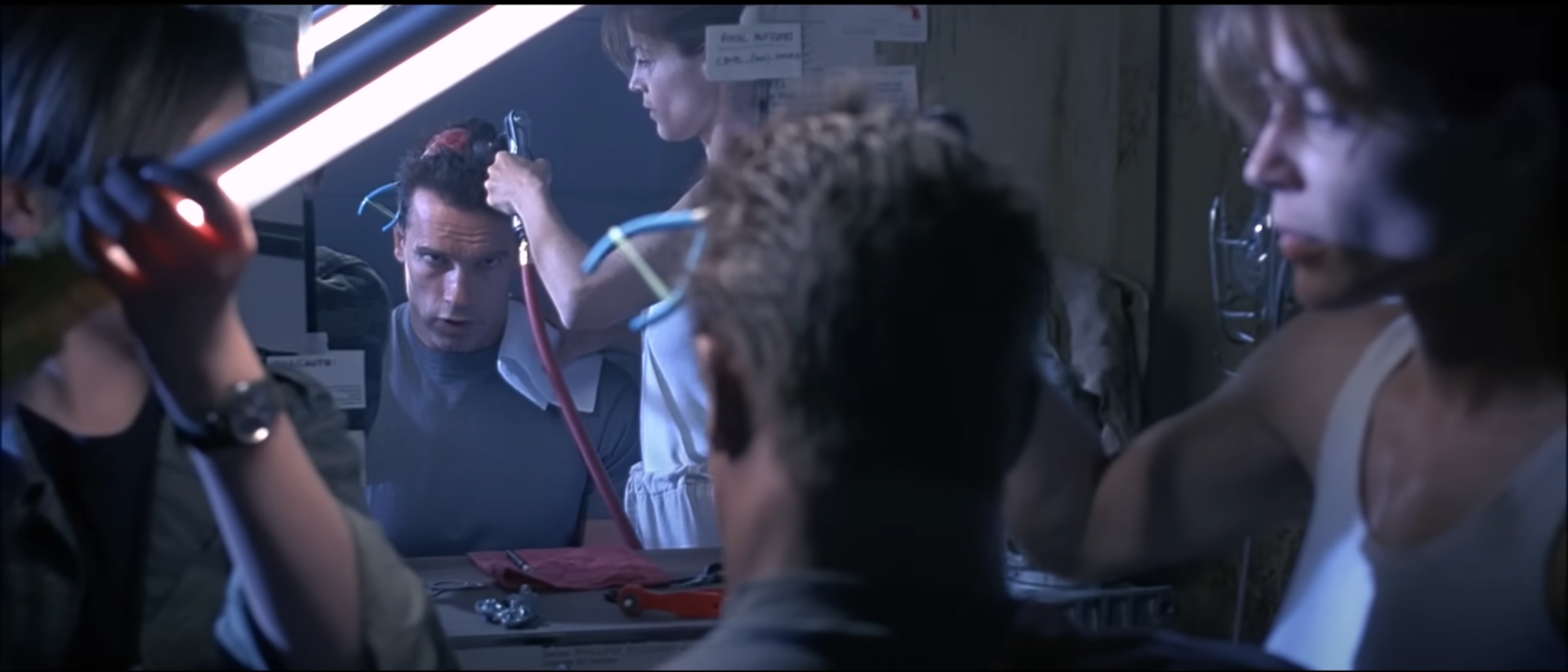
The cutting room floor: In 1993, an extended cut of T2 was released on laserdisc that offered 15 minutes of extra action and character development. That material was first present in the pages of this book. There's an early scene of hospital orderlies beating Sarah Connor and forcing medicine on her - then a subsequent dream of Sarah's involving a vision of Kyle Reese (a returning Michael Biehn). There's also my personal favorites: an extended scene where future resistance leader John Connor argues with his mother over resetting the Terminator's CPU to enable him to learn more about human behavior, and a subsequent moment of levity when the Terminator attempts to smile. A fair amount of exposition with Skynet's unwitting programmer, Miles Dyson (iconic character actor Joe Morton) is reinstated, as are some great expository depictions of the malfunctioning T-1000 during the final battle. (When the T-1000 impersonates Sarah, her son John can tell who's who when he sees one's feet melting into the floor.)
There are also a handful of bits that didn't make it into that cut, most never filmed in the first place. The book's extended prologue shows the Resistance's victory over Skynet and the urgent race to counter the machines' final counterattacks through time travel. Frakes also formally connects the birth of Skynet with a deleted scene from The Terminator where two techs find the remains of the original, villainous T-800 after the factory finale. (In a minor plot point that recalls portions of the novel Jurassic Park, Dyson is continuing the work of one of those techs, who died of a brain tumor before he could unlock the true mysteries of the damaged CPU.) Fans of Sarah's foil, the odious Dr. Silberman, will enjoy the end of his character arc: seeing the warring Terminators causes his grip on reality to slip.
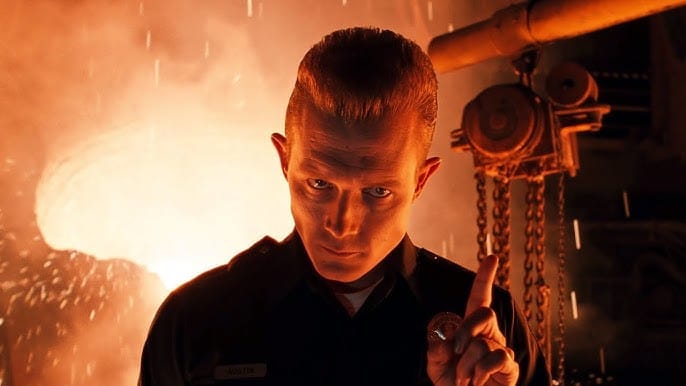
A slight but profound alteration to the action in the final act: when the T-800 sacrifices itself at the story's end, it willingly jumps into the molten steel instead of being lowered. (The book's protagonist can self-terminate.) In a powerful callback to an earlier question from John Connor in the book, the Terminator admits it is afraid to do so, further underlining the series' most interesting ideas about artificial intelligence.
Finally, a filmed but unused epilogue - rendered non-canon by Dark Fate - shows Sarah in a future-proofed 2029 reflecting on her family and the value of human life (as learned by humans and even machines). Its exclusion is at least a key contributor to why there are so many damn sequels to this film, so its absence can certainly be mourned.
The last word: Frakes' careful hand and access to material beyond what fans saw on screen makes for one of the platonic ideals of a novelization - one that could even restore the series' sci-fi bona fides for a doubting reader. If only it had prevented Terminator Genisys...
